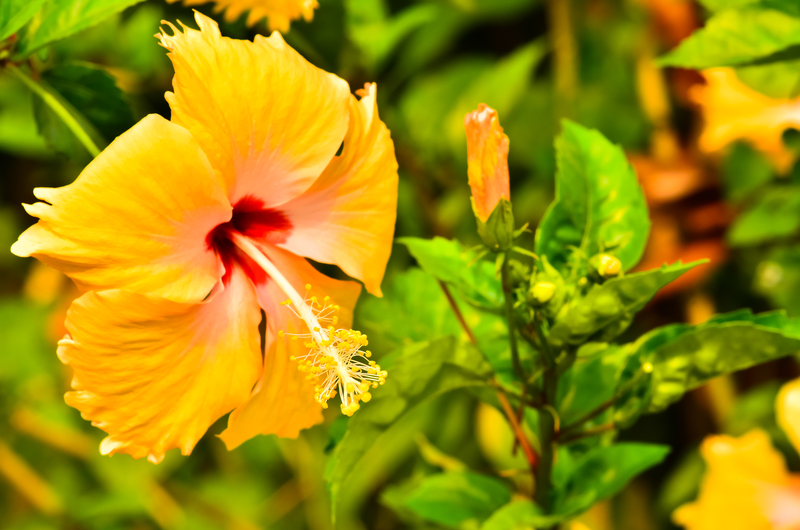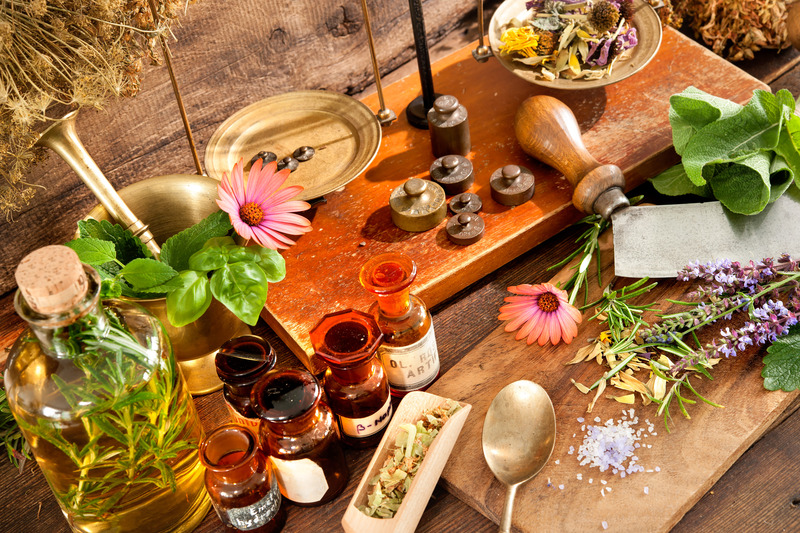Start Gardening with These 9 Essential Tips
Posted on 18/08/2025
Start Gardening with These 9 Essential Tips
Dreaming of a lush, vibrant garden but not quite sure where to begin? Starting a garden is a rewarding journey that brings beauty, tranquility, and fresh produce to your home. Whether you have a sprawling yard or a cozy balcony, everyone can enjoy the benefits of gardening. Follow these 9 essential gardening tips to begin your green-thumb adventure with confidence!

1. Choose the Right Location
Proper location is the backbone of successful gardening. Before you start digging, observe your available space throughout the day. Most vegetable and flower gardens require at least six hours of direct sunlight. Look for spots away from large trees or fences that might cast unwanted shade.
- Sunlight: Track the sun's movement. Use a plant light meter or just check hourly for sunlight exposure.
- Convenience: Select a spot easy to access for regular maintenance and watering. Ideally, it should be visible from your home, reminding you to care for it.
- Shelter: Choose a location with some protection from wind or harsh weather.
Pro Tip: If you're tight on space, container gardening is an excellent way to adapt gardening to balconies, patios, or small yards.
Garden Planning Matters
Well-planned gardens are both productive and beautiful. Sketch a simple layout to visualize plant arrangements before you start planting.
2. Test and Prepare Your Soil
The secret to a thriving garden is healthy soil. Rich, well-draining soil provides essential nutrients plants need to grow. Conduct a simple soil test (kits are available at most garden centers) to determine pH and nutrient levels.
- Amend the Soil: Based on test results, mix in organic matter like compost or aged manure.
- Drainage: Avoid spots where water pools. Good drainage is crucial to prevent root rot.
- Loosen the Soil: Use a fork or tiller to break up compacted earth, creating a welcoming home for plant roots.
Tip: Raised garden beds allow for complete control over soil quality, making it easier to overcome poor native soil conditions.
3. Pick the Right Plants
Selecting suitable plants is key to gardening success. Factor in your region's climate, the season, sunlight, and the space you have available.
- Beginners: Start with easy-to-grow plants such as lettuce, tomatoes, marigolds, or zinnias.
- Native Species: Native plants and flowers thrive with less maintenance and support local pollinators.
- Read Labels: Plant tags provide critical information about spacing, watering, and sun exposure needs.
Pro Tip: Mix vegetables, herbs, and flowers together to create a biodiverse, pest-resistant garden.
Explore Container Gardening
If ground space is limited, grow herbs and compact vegetables like radishes, peppers, or strawberries in pots or vertical gardens.
4. Learn Proper Planting Techniques
Getting planting right sets your garden up for future abundance. Follow these steps to ensure your plants flourish:
- Dig the Right Hole: Make each hole twice as wide as the root ball but only as deep.
- Gently Tease Roots: Loosen tangled roots before placing the plant to prevent root binding.
- Firm Soil Slowly: Fill around roots and firm the soil gently to remove air pockets.
- Water Well: Hydrate new plants thoroughly to help them adjust to their new environment.
Avoid: Planting too deep or too shallow, which can stress or kill the plant.
5. Water Wisely
Consistent moisture is crucial, but over- or under-watering are common beginner mistakes. Learn the right way:
- Water Early: Morning watering reduces evaporation and gives plants a good start to the day.
- Soak Deeply: Apply enough water to moisten the root zone, but don't leave plants sitting in soggy soil.
- Mulch: Use organic mulch to retain moisture, suppress weeds, and regulate soil temperature.
Tip: Stick your finger about an inch into the soil. If it's dry, water your garden. Drip irrigation can make watering more efficient and save time.
Adopt Smart Watering Tools
Soaker hoses or watering cans with a sprinkler head help target roots and avoid wetting leaves, which can cause disease.
6. Feed Your Plants
Like all living things, plants need food. An appropriate fertilizer routine helps your garden grow strong and productive.
- Organic Choices: Compost, fish emulsion, and manure nourish both plants and the soil.
- Balanced Fertilizers: Look for products tailored to your plant's needs--vegetables, flowers, or shrubs.
- Frequency: Avoid over-fertilizing. Apply as directed on the package or based on your soil test results.
Remember: Healthy soil is the best fertilizer--regularly add compost for ongoing nourishment.
7. Control Weeds and Pests
Weeds compete with your plants for nutrients, sunlight, and water, while pests can demolish a thriving garden overnight.
- Weed Regularly: Pull weeds by hand when the soil is moist, or use a hoe for larger sections.
- Mulch: A thick layer of organic mulch naturally suppresses weed growth.
- Pest Watch: Inspect leaves and stems regularly for insects or disease.
- Natural Defenses: Attract beneficial insects like ladybugs or use neem oil as an organic pest solution.
Tip: Avoid chemical pesticides when possible to protect pollinators and soil life.
8. Don't Forget Regular Maintenance
Consistent care ensures your garden remains healthy and beautiful all season long.
- Prune Regularly: Trim dead or damaged foliage to encourage stronger growth.
- Stake Tall Plants: Provide support to keep tall blooms or vegetables upright.
- Deadhead Flowers: Removing spent blossoms encourages more blooms.
Staying on top: Walk through your garden daily, even if only for a few minutes. You'll catch problems early and enjoy your progress.
9. Enjoy and Learn as You Grow
Gardening is a lifelong journey with many learning opportunities. As you watch your plants grow, take pride in your successes and learn from the challenges.
- Keep a Journal: Record planting times, variety performance, weather patterns, and what works in your garden.
- Join a Community: Connect with local gardeners online or in your neighborhood for inspiration and advice.
- Celebrate: Harvest your first flowers or vegetables and share with friends and family.
The Real Reward: Beyond the harvest, gardening builds patience, mindfulness, and a deeper connection with nature.
Helpful Gardening Resources
- Local cooperative extension offices
- Online gardening forums and social media groups
- Books and magazines on organic gardening and landscaping

Begin Your Garden Today!
With these 9 expert gardening tips, you're well on your way to creating a thriving outdoor oasis, no matter your experience level. Starting a garden is simpler than you think--all it takes is a bit of planning, a sprinkle of knowledge, and a willingness to get your hands dirty.
Remember: every gardener faces obstacles, from unpredictable weather to curious critters--but the beauty of gardening is that each season brings new lessons and joys.
Takeaway
- Start small and build confidence with easy plants.
- Be patient; gardening is a process, not a race.
- Enjoy every moment--your garden will grow as you do!
Ready to sow the seeds of success? Grab your trowel and follow these essential gardening tips for beginners. Your dream garden awaits!
Frequently Asked Questions: Starting Your First Garden
How do I start a garden if I've never gardened before?
Start small! Use containers or a raised bed, choose easy plants, and focus on learning the basics before expanding.
What's the best time of year to start gardening?
Spring and early fall are ideal times for starting a garden, but it depends on your climate. Check local planting calendars for the best dates.
How often should I water my garden?
Most gardens need about 1 inch of water per week, but this varies by plant and weather. Check the soil moisture before watering.
What if I make mistakes?
Making mistakes is part of the gardening journey. Learn, adapt, and don't be discouraged--nature is forgiving and resilient.
Start gardening now and discover how rewarding it can be to nurture life, beauty, and food right at home--one seed at a time!
Latest Posts
Top Picks: Must-Have Gear for Garden Enthusiasts
Garden Your Way to a Healthier Planet and Reduce Climate Change
Unveiling the secrets of container gardening

